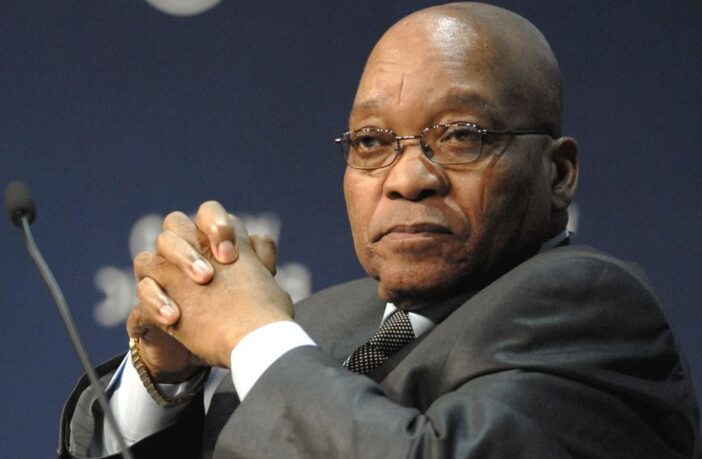He has been given five days to hand himself to the police. Failing that means the police must order his arrest.
Mr Zuma’s time in power, which ended in 2018, was dogged by graft allegations.
Businessmen were accused of conspiring with politicians to influence the decision-making process.
The former president made one appearance at the inquiry into what has become known as “state capture” but then refused to appear subsequently.
Acting Chief Justice Sisi Khampepe was damning in her ruling. Mr Zuma refused to come to the court to explain his actions, she said, and the “elected instead to make provocative, unmeritorious and vituperative statements that constituted a calculated effort to impugn the integrity of the judiciary.
The former president was not in court to hear the majority ruling and has repeatedly declared that he was the victim of a giant political conspiracy.
In a separate legal matter, Mr Zuma pleaded not guilty last month in his corruption trial involving a $5bn (£3bn) arms deal from the 1990s.

This was a scathing, and hugely significant judgement against Jacob Zuma.
The Constitutional Court did not simply find him in contempt, but spelt out the many ways in which the former president had lied, sought to mislead the public, and ultimately tried to “destroy the rule of law”.
The judges were clearly seeking to pre-empt the inevitable pushback from Mr Zuma’s supporters.
They say that he is the victim of a vast political conspiracy, and wonder why a former anti-apartheid hero who spent a decade on Robben Island should be imprisoned, while key figures from South Africa’s old racist white minority government remain free.
But while there may be some protests against the court’s majority decision, many more South Africans are likely to welcome the judiciary’s firm stance after years in which it seemed the rule of law was being eroded by a culture of high-level impunity.
The ruling will also have an impact within the governing ANC, and will strengthen the hand of President Cyril Ramaphosa while weakening those – often linked to Mr Zuma – who has also been implicated in the vast “state capture” corruption that Mr Ramaphosa has repeatedly vowed to expose and confront.





